Burbank Sister Cities program gives students insight into local family life
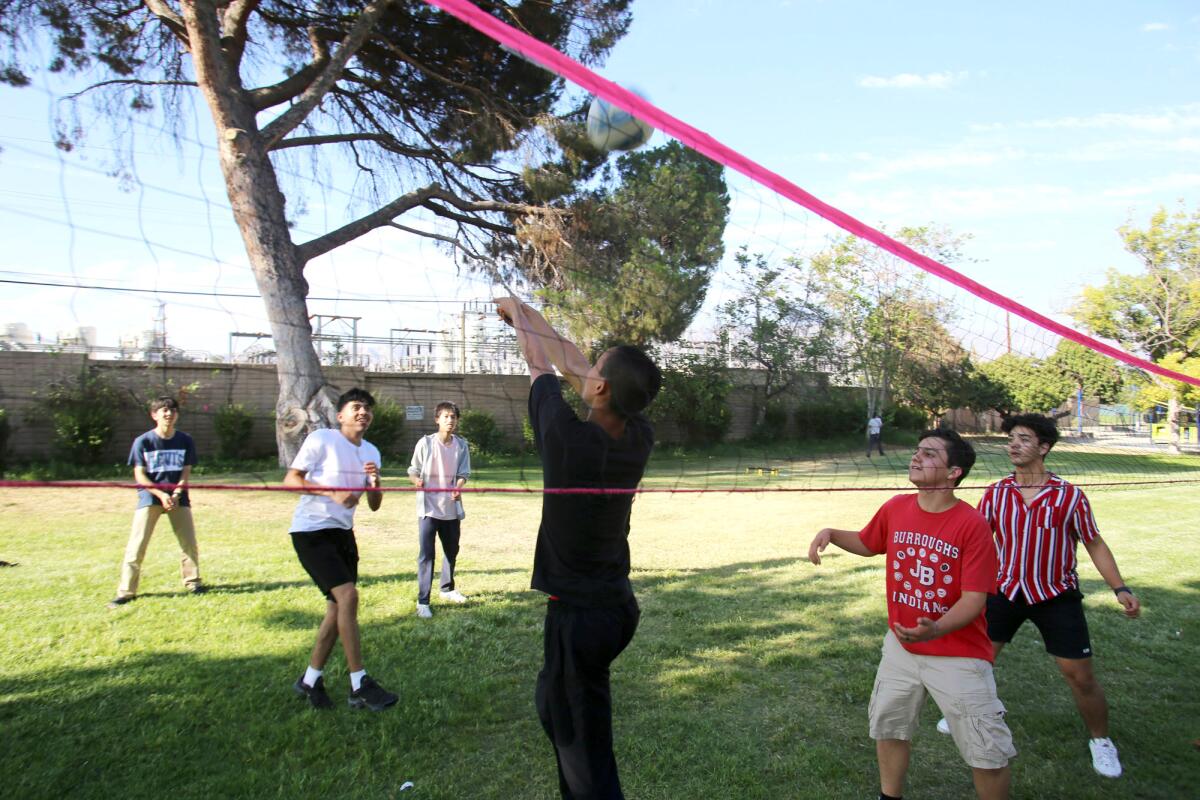
Thousands of tourists visit Burbank on an annual basis and make the usual stops — take a tour of one of the media studios and maybe go to an amusement park.
For the past week, 12 students from Ota, Japan — one of Burbank’s sister cities — have not only had the opportunity to go sightseeing around Southern California, but they have also had a chance to experience life as a local.
On Monday, the Burbank host families held a laid-back barbecue and picnic at Ralph Foy Park. While the adults were busy grilling hot dogs and hamburgers, the teens from Ota and Burbank played volleyball and cornhole.
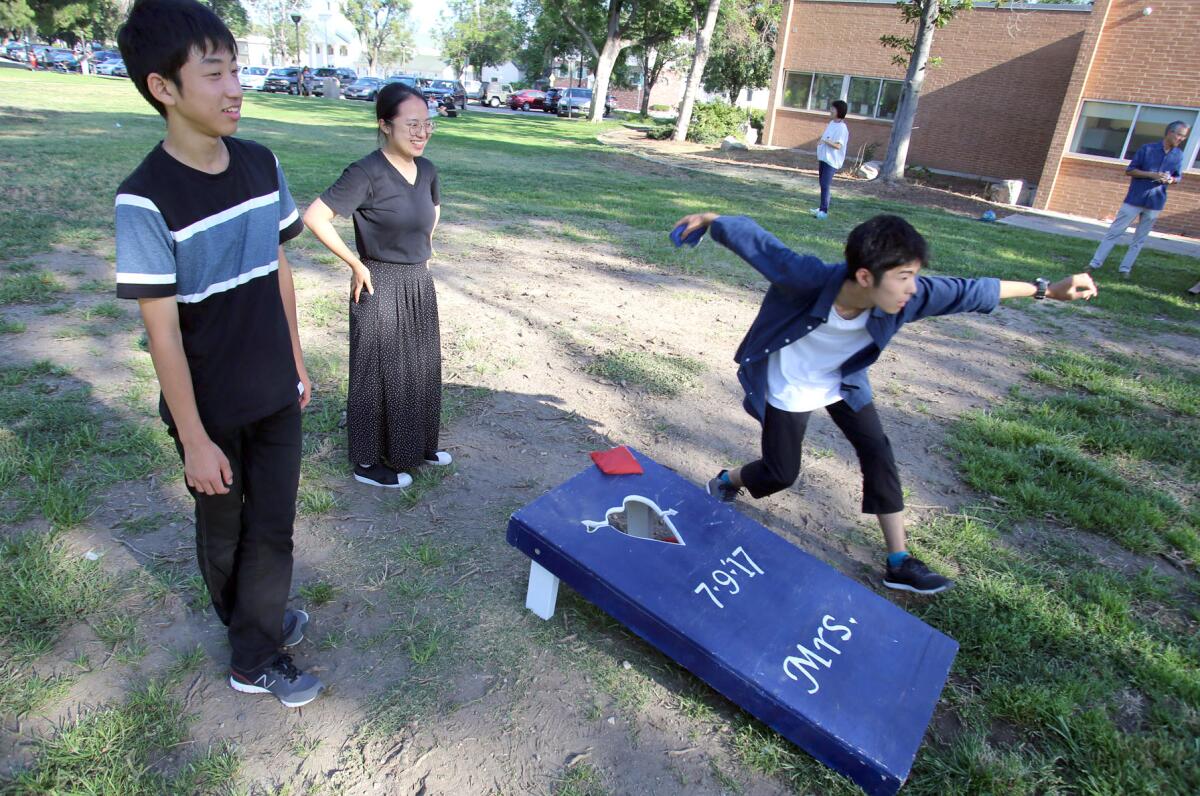
“Our students are going along on the trips with [the students from Ota], giving them opportunities to converse and talk about different things,” said James Callahan, a Burbank resident whose family is hosting one of the Japanese students.
“They get to practice their English, and we get to learn more about Japan,” Callahan added.
The Callahan family is familiar with Burbank’s Sister Cities Program. It is the second time they have hosted a student from one of Burbank’s sister cities and two of Callahan’s daughters have traveled abroad through the program — one visited Ota, Japan, while the other went to Incheon, South Korea.
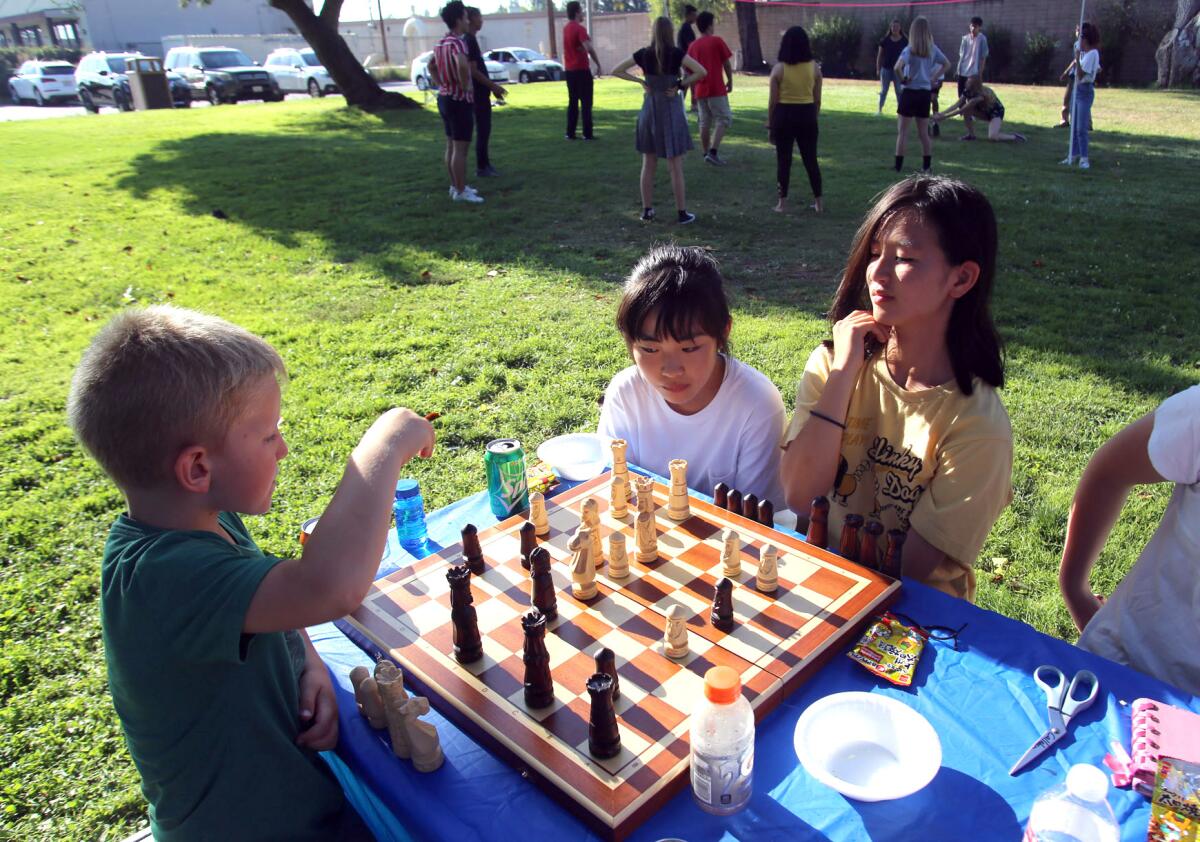
Callahan said his two daughters came back from their trips with a deeper appreciation of Japanese and Korean cultures, as well as valuing the customs and traditions of the United States.
“When you go and travel, you go to see the famous sights of a city or country,” Callahan said.
“This program is different because our students and the students that come here live with a family and they experience family life. There’s no way you can do that as a tourist on a bus,” he added.
One of the Ota students, Keitaro Saito, 17, has visited California twice during vacations with his family. However, this third time in the state — his first with the Sister Cities program — has been his favorite trip, so far, he said.
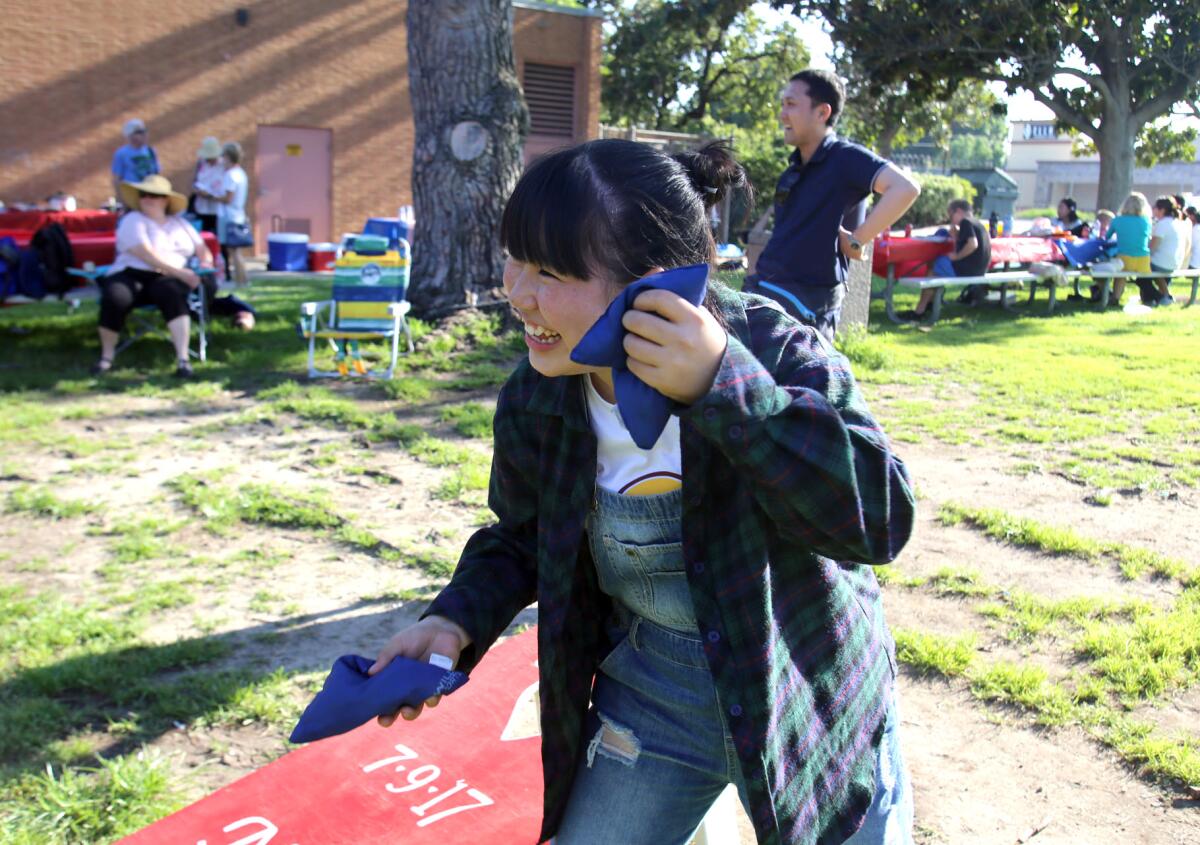
Keitaro said his host family had one of their children stay with his family in Ota last year. He added that it was good to see a familiar face, and he was grateful for his host family’s hospitality.
“I like this place a lot,” Keitaro said. “Everyone is friendly, and I like that there are people from different races that respect one another.”
He added that he hopes to move to the United States for his college education, and he plans to study sports medicine.
Shun Okamoto, one of the chaperons from Japan, has firsthand experience about what it’s like to stay with an American family for an extended period of time.
In 2004, Okamoto participated in the Sister Cities program when he was 15 years old and spent time with a Burbank family. It was his first time visiting the United States, and he said the weeks he spent with his host family helped shape him to be the person he is today.
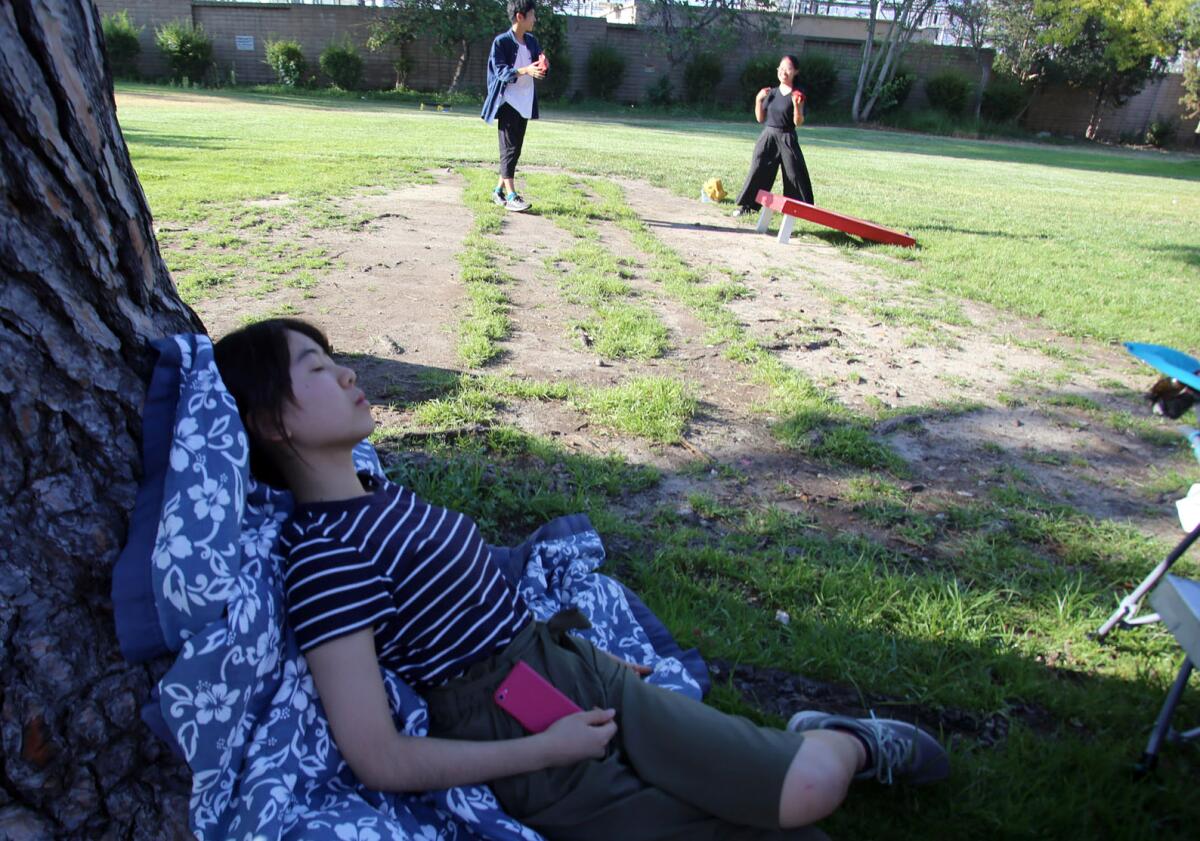
“When I was spending time with my host family at night, I practiced my English and learned to communicate to them what I needed and if I was not feeling good,” Okamoto said.
Okamoto, who is now 30 years old, said he asked to be a chaperon for this year’s trip to Burbank for a few reasons — he wanted to reconnect and thank the Burbank family who he stayed with, and he wanted to make sure the Japanese students on this trip get to fully experience and appreciate their time with their host families.
“Playing in the park with the American students, living with their host families and attending a birthday party — these are things that tourists cannot experience,” Okamoto said.
